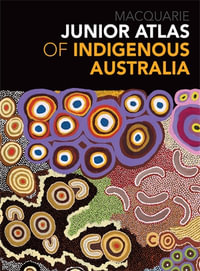Entropic Creation is the first English-language book to consider the cultural and religious responses to the second law of thermodynamics, from around 1860 to 1920. According to the second law of thermodynamics, as formulated by the German physicist Rudolf Clausius, the entropy of any closed system will inevitably increase in time, meaning that the system will decay and eventually end in a dead state of equilibrium. Application of the law to the entire universe, first proposed in the 1850s, led to the prediction of a future 'heat death', where all life has ceased and all organization dissolved. In the late 1860s it was pointed out that, as a consequence of the heat death scenario, the universe can have existed only for a finite period of time. According to the 'entropic creation argument', thermodynamics warrants the conclusion that the world once begun or was created. It is these two scenarios, allegedly consequences of the science of thermodynamics, which form the core of this book. The heat death and the claim of cosmic creation were widely discussed in the period 1870 to 1920, with participants in the debate including European scientists, intellectuals and social critics, among them the physicist William Thomson and the communist thinker Friedrich Engels. One reason for the passion of the debate was that some authors used the law of entropy increase to argue for a divine creation of the world. Consequently, the second law of thermodynamics became highly controversial. In Germany in particular, materialists and positivists engaged in battle with Christian - mostly Catholic - scholars over the cosmological consequences of thermodynamics. This heated debate, which is today largely forgotten, is reconstructed and examined in detail in this book, bringing into focus key themes on the interactions between cosmology, physics, religion and ideology, and the public way in which these topics were discussed in the latter half of the nineteenth and the first years of the twentieth century.
Industry Reviews
'... an exemplary history of ideas, which taxonomizes and critiques a spectrum of arguments about thermodynamics and cosmology, clearly demarcating newer from older ways of thinking. Particularly fascinating is his account of the staying power of the conservative and theological connotations of thermodynamic cosmology into the Cold War, when it became part of Soviet orthodoxy that laboratory physics could not be applied to the infinite universe. The book will interest scholars of science and religion as well as historians of physics.' British Journal for the History of Science 'Pour decouvrir en detail les tenants et les aboutissants de ces debats, rien de tel que le livre erudit, novateur et passionnant d'Helge Kragh. [...] Kragh montre en effet que les liens historiques entre philosophie, religion et science sont complexes. C'est un autre merite de ce tres bon livre.' Pour la Science 'Je ne peux que recommander ce livre riche, original et passionnant, A toute personne qui s'interesse A l'histoire de la physique, et en particulier celle de la cosmologie, mais aussi aux philosophes et theologiens qui abordent aujourd'hui le debat 'science-foi'.' Archives Internationales d'Histoire des Sciences
























